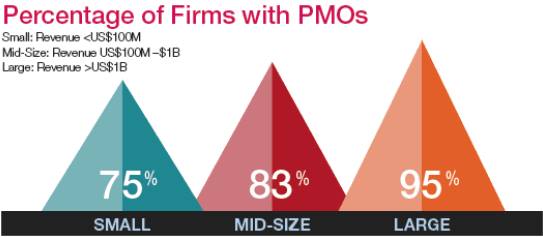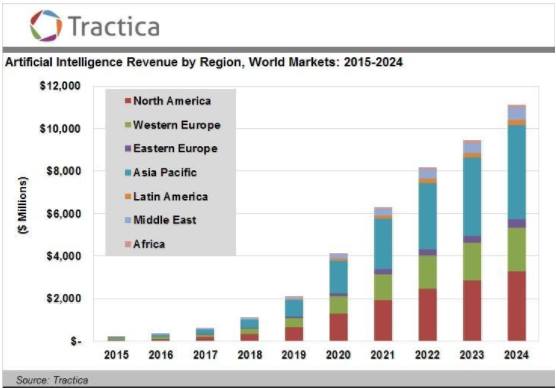What are the key Project Management trends to watch out for in 2018?
In recent years, project management has burgeoned as it acts as a coveted functional branch of industries. Whether it's about launching new product or software, project management finds its application. The success of project management lies in completing projects within time and budget constraints. Time and cost are important components of an industry that impact its bottom lines and top lines. Project management topics provide program management tools and techniques to manage these components.
While paving the way to confront today’s dynamic challenges, agile is one of the popular project management buzzwords. It's used to respond back to inevitable changes. It acquires the attention of academia involving various levels of PMP certifications. Project management is bringing lucrative career opportunities for professionals. But we can’t ignore the other side of the coin, we have seen new challenges each year for the project management community. In the last couple of years, we’ve seen rapid changes in the industries. And hence, project management topics have traced out a path to maturity.
Project Management
As per the definition from PMBoK (Project Management Body Of Knowledge) 6th Edition,
"Project Management is the application of knowledge, skills, tools, and techniques to project activities to meet the project requirements.”
Project Management Trends
What do you mean by Project Management trend?
Dynamics of project management have changed over the years. Be it the evolution of Industry 4.0, IoT (Internet of Things) or automation. This new generation evolution needs to be incorporated into project management framework. Project Management trends help us with the predictability of project management future. You can combat project management challenges either by understanding the future or current trends in project management.
Biggest Project Management Trends in 2018

Image Source: https://searchengineland.com/seo-trends-prepare-2017-263710
Understanding the current scenario & environment, I’ve tried to list down the biggest Project Management trends in the year 2018, as we move from the year 2017 to 2018.
Below are the top 10 project management challenges in the year 2018:
-
Shift to Enterprise PMO (Project Management Offices) for all organizations.
-
Leveraging the Artificial Intelligence (AI) for better productivity and decision making.
-
Project managers with Emotional Intelligence (EQ) capabilities.
-
Usage of wearable technology to understand humans.
-
Combination of traditional & agile approach as a hybrid method.
-
Effective resource management
-
Increasing culture of remote project teams.
-
Need for digitization and real-time updates.
-
Use of techniques like Kanban Boards in Project Management.
-
Ensuring cyber-security
These trends are common irrespective of industry, or context of the organization. These are the mega-trends which propel and need attention from the Project Management community. This is essential to make necessary incorporation, to meet the future requirements.
Now, let’s discuss these trends in detail:
1. Shift to structured Enterprise PMO (Project Management Offices)
We have seen recent inclination of most organizations towards establishing PMOs. This trend management expects to take a firm shape in the year 2018. In organizations, PMOs create a culture of centralized focus. It bridges the gap between organizational top-level objectives and project goals. Enterprise PMO is gaining more popularity among project management oriented businesses and industries. EPMO ensures to link business goals and strategies to individual project outcomes. And hence support its effective implementation. EPMO supports and provides enterprise project management tools to the organization. Also, PMO puts in place governance and management interface among several functions. As per the pm solutions research report, a survey shows 85% of the organizations had PMOs in 2016. There was a rise of 5% in 2016 from the year 2014 survey. As per PMI report, organizations with an established EPMO saw 38% more projects. This helps them to meet business goals and strategic objectives. This also encountered 33% fewer project failures.

Image Source: http://www.pmsolutions.com/
Figure: Organizations (Small, Mid-size & Large) with PMOs as per pm solutions research, 2016
You can refer to the blog, Which PMO Structure is right for your organization? to know more about different types of PMOs.
2. Components of Emotional Intelligence (EQ)
Emotional Intelligence, also known as Emotional quotient is a popular notation among psychologists. EQ deals with controlling self-emotion while managing emotions of others. Main five components of EQ are Self-awareness, Self-regulation, Motivation, Empathy and Social skills.
These components are necessary to be an effective project manager in today’s era– Why so? Well, the major challenge for a project manager is to deal with people as a resource. People are less manageable with numbers and data, unlike other resources. A project manager should be able to resolve people-related issues. Whether it is maintaining team dynamics or conflict management. At the same time, he should be able to bring the best potential out of the team. If you are good at making a critical decision in project work, you are likely to have better chances of success. Current trends in project management have undergone change. Recruiters place more emphasis on EQ as a major criterion. EQ is used as a key factor to select project managers for jobs. It has become an important factor among project managers to warrant success.
3. Combination of traditional & agile approach as a hybrid method
The market is dynamic and user experiences are ever changing. As a result, agile principles are gaining larger acceptance even in a startup project management culture. We have seen a recent inclination of Project Management experts towards the agile business model. Adoption of an agile model is not only limited to software industries anymore.
Agile scheduling tools have now become important startup project management tools. The need for integrating agile principles into enterprise project management is important. It has captured the attention of academia as well. To bridge the gap between industry & academe, agile principles were introduced.
This update appears in PMBOK Sixth Edition by PMI (Project Management Institute). A blend of traditional and agile approach to projects will bring desired results. This combination is known as the hybrid method. This method would be the most preferred pragmatic project management approach among professionals. The choice of one model over the other will depend on the type and complexity of project in hand. As a matter of fact, a future project manager has to be sound in both the approaches. And he or she should be capable to choose the best option as per the situation. No approach is better than the other. One approach can be applied in some phases of a project, while another one in remaining phases. For unclear project goals and requirements, an iterative agile approach is applied. A traditional approach helps focus on frozen goals and requirements.
4. A new approach to resource management
Resource management is a key challenge for project management companies. Reason being the scarcity of adequate and qualified resources. PMI has declared in its recent report, “22 million new jobs will be created during next decade. Employers will need approximately 88 million individuals working in project management oriented roles.” Hence it is imperative for employers to look for qualified resources. Lack of qualified professionals results in failures of critical projects. In some organizations, project selection is based on adequate resources in hand. Managing resources, scheduling and allocating them will become of utmost importance. The use of effective resource scheduling software will increase this year.
5. The culture of remote project teams
The culture of remote project teams is expected to increase this year. It’s gaining popularity from both perspectives– employee and employer. Employees can manage to balance their work life. They can do this by contributing to projects from remote locations. They can join meetings and discuss business related project topics. They can discuss as per their convenience of time and flexibility. Employers can save on logistics and administrative costs by providing remote participation facilities. Virtual communication can connect project stakeholders and project manager. This would trigger connection on a real-time basis and get the necessary project updates. This increases job satisfaction and morale among team members. This is possible at a reasonable cost to organizations by using effective technology. It builds a sense of commitment among team members with enhanced productivity.
6. Digitization and real-time updates
With the advent of cloud technology, it is possible to gather data and updates on a real-time basis. Cloud digitization provides an effective way to collaborate during project work. This trend is likely to go up this year with the use of more cloud-based software to manage project work. Crunching data and inferring useful information is indispensable for decision-making. Real-time inputs and analytics further improve the accuracy in decision-making. Hence, project managers of modern era should be well versed in these technologies. So that they can better leverage its benefits in managing project work. Cloud technology also helps to keep project data and learning. This can be used for project management analysis.

Image Source: https://news.sap.com/digital-business-modeling-a-structural-approach-toward-digital-transformation/
7. Promotion of Kanban Boards in Project Management
Kanban Boards are the display board concept attributed to Toyota manufacturing system. It’s a tool for lean management used in manufacturing setups. Yet, in an agile environment, consumer requirements and user experiences have undergone massive changes. Scrum team is using Kanban Boards these days, Kanban boards use a grid system. Kanban cards are placed to maintain dynamic workflows. There is an increasing adaptation of the hybrid project management method. The importance of planning in project management is growing. Kanban boards will find their wide applications in Project Lean, Scrum and Agile management. It will build a strong foundation for Scrum master. This would promote a collaborative problem-solving culture.
8. Ensuring cyber-security
The application of online platforms & digitization in project management will increase this year. Data security will be the biggest challenge to organizations. Online data management software will be sought- after, it can provide the assurance of cyber-security. User data privacy along with compliance with legal regulations are of utmost importance. Cyber-security, hence, will be in trend this year.
9. Usage of wearable technology
The trend of using wearable devices and gadgets has been soaring up in a couple of years. Devices like wrist wearable, smart glasses, and chips, etc., are in trend. These wearable devices can generate useful data for the study of human behavior at work. It can help the project manager to study several facts. This may prove useful to increase efficiency, productivity, and morale of a team. As a project manager, you can collect the factors causing your team’s job satisfaction. Not only that, with this technology, you can tackle your team’s health and fatigue issues. Some of the organizations in 2018 are targeting to foray into wearable technology. This helps to track the energy level of their employees and helps to gain insights useful in increasing productivity. This makes employees responsible for their health. This would prove as a boon to project management community. Experts & researchers from Goldsmiths and Technology Company Rackspace show varied results. They mentioned that wearable devices enhanced productivity by 8.5%. Employees’ job satisfaction at work increased by 3.5%.
10. Introduction of Artificial Intelligence (AI)
Project managers face the challenges of resource constraints, especially human resource. To improve productivity, better use of human resources is recommended. AI gives an opportunity to better deal with mundane rule-based tasks done by humans. So it improves the project process efficiency & productivity. It reduces human dependencies for these routine repetitive tasks. With the help of robots (or simply bots) repetitive, rule-based actions can be automated. All the while engaging human resources in more creative and innovative activities. Proper use of human power combined with improved error-free processes are a byproduct of AI. AI helps to enhance productivity if used efficiently in project work. Project Management professionals are taking interest to realize the full potential of AI. This trend will continue in 2018 to explore better opportunities for Project Management professionals.

Image Source: https://aitrends.com/curata__zlmgmottgd7luy9-jpeg/
Figure: Region-wise revenue generation and growth opportunity expected due to AI in years to come
Future of Project Management trends

Image Source: http://www.ipsmarx.com
As per the recent report published by PMI on PMP job growth (Project management 2017 – 2027),
"By 2027 there will be a growing need of filling a major breakthrough of 87.7 million PMP roles."
Hence, there will be high demand for Project Management professionals across the industries. The above-mentioned Project Management trends for the year 2018 are likely to continue in the future. They will even reach a level of high maturity in all respective pointers. Future project managers will be expected to have diversified knowledge. They should exhibit hands-on experience in managing projects with the hybrid method. They need to have high EQ capabilities to maintain relationships. They should be knowledgeable about latest project management tools and techniques. Online data sharing will tend to increase in future. This facilitates cross-collaboration for real-time updates. The demand for cyber-security will continue in years to come. AI & wearable technologies will have better prospects in project management, they have added support features and high accuracy. In future, project management will touch most of the human components. This would increase efficiency and productivity.
Conclusion
The key project management trends listed in this article are the most probable trends for this year and the near future. There is an increased level of maturity and planning in project management. We are likely to see some trends taking shape in your organization sooner than others. But, digitization and automation in project management will have sheer adaptation by matured organizations. In 2018, wearable technology, automation, AI and Machine learning will be new trends in project management. Managing and attracting human resources will be a key challenge this year, and will continue in next couple of years. Having said that, I would like to emphasize one last point. The future of project management is bright and will explore lucrative opportunities for aspirants.